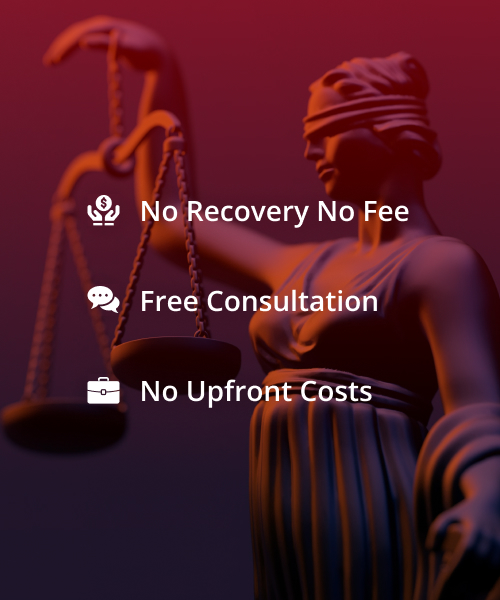Pharmacy Malpractice Medication Injuries

Jeffrey R. Davis P.A., Miami personal injury lawyer, has represented victims and families of victims that have been injured or killed by prescription drugs. Jeffrey R. Davis, P.A. has also represented clients who have suffered injuries as a result of pharmacist error or defective drugs. The firm has handled cases of:
- Wrong Dosage
- Wrong Medicine
- Expired Medicine
- Failure to recognize contraindication errors
- Failure to monitor medication use
- Drug Reactions
Read about our Recent Cases and Settlements involving medication injuries.
In recent years, there have been news articles and reports about dangerous medication and in response many drug companies have pulled certain medications off shelves. However, many of the individuals hurt by the use of these dangerous medications have initiated product liability suits against various pharmaceutical companies.
The pharmaceutical industry is one of the largest industries in the world. Pharmaceutical companies have many attorneys working on their side along with aggressive techniques to protect their profits and products. You will need an experienced and resourceful personal injury lawyer who will understand the problems with your medicinal regimen, determine the strength of your case, and define potentially liable parties. The law firm of Jeffrey R. Davis P.A. has represented clients injured by medication injuries throughout the state of Florida for 25 years.
Important Information for Potential Clients
Pharmacy Malpractice vs. Medical Malpractice
It may be unclear whether a medication injury is pharmacy malpractice instead of medical malpractice. Certain acts are covered under the Florida Medical Malpractice Act (FMMA) while others are covered by the Florida Pharmacy Act (FPA) and other laws.
The answer largely turns on the term “dispense.” Dispense is the transfer of possession of one or more doses of a medicinal drug by a pharmacist to the ultimate consumer or her agent. FLA. STAT. § 465.003(6). “Dispensing” of medicine in a harmful manner is covered under the Florida Pharmacy Act and not covered by the Florida Medical Malpractice Act.
Ultimately, either a pharmacist or a medical practitioner that dispenses medicinal drugs must:
- comply with The Florida Pharmacy Act (§§ 465.001 to 465.188), the Florida Drug and Cosmetic Law, the Florida Comprehensive Abuse Prevention and Control Act, and all federal laws.
- follow the procedures and standards set forth by a dispensing procedure committee (made up of members of the Florida Board of Medicine, Florida Board of Osteopathic Medicine, Florida Board of Pharmacy, and an additional person with a healthcare background). The dispensing procedures include guidelines on how to provide patients with description of their conditions, medication selection, and dispensing and use limitations FLA. STAT. § 465.185(1).
For example, in situations where a medical professional personally administers harmful medication to patients in their presence is not “dispensing” within the meaning of the Pharmacy Act, and would be medical malpractice. Although if a pharmacist actually dispensed this medicine to the medical professional and was directly involved in causing that medical professional to give harmful medication to the patient, there would potentially also be a pharmacy malpractice claim (in addition to the medical malpractice claim). In situations where medication is prescribed and provided to a patient for the patient to take on their own constitutes “dispensing” and therefore would probably be pharmacy malpractice.
To complicate matters, there are some doctors that dispense medicine to patients by filling their own prescriptions with medications stored in their offices. Interpreting statutes to identify the type of malpractice claim you have should be done by an experienced medical malpractice attorney.
The Practice of Pharmacy
Under the Florida Pharmacy Act, as an element of “dispensing,” prior to the actual physical transfer of medication, a pharmacist must interpret and assess the prescription order for potential adverse reactions, interactions, and determine the dosage regimen she deems appropriate in the exercise of her professional judgment. She must also certify that the medicinal drug called for by the prescription is ready for transfer. The pharmacist must then provide counseling on proper drug usage, either orally or in writing, if in the exercise of her professional judgment counseling is necessary. FLA. STAT. § 465.003(13).
A pharmacy is any place where medicinal drugs are compounded, dispensed, stored, or sold. There are community pharmacies (Walgreens, CVS), institutional pharmacies (inside hospitals, nursing homes, clinics), and internet pharmacies. Some home health agencies and nursing homes work with consultant pharmacists (who are basically administrative advisors).
Pharmacists walk a fine line. It is part of a pharmacist’s duty to be diligent and watch for issues with dosage, drug interactions, contraindication errors, etc. However, the Pharmacy Act specifically restricts pharmacists from altering a prescriber’s directions, diagnosing or treating any disease, initiating any drug therapy or practicing medicine.
If you or a loved one has suffered personal injury or death from any medication injury or pharmacy error, please contact Jeffrey R. Davis P.A. for a free no-obligation case review or call us at (305) 577-3777. Our attorneys will speak with you in English or Spanish/Se Habla Español.









